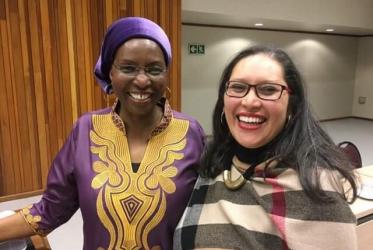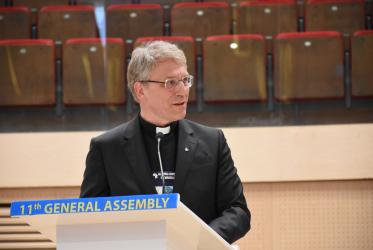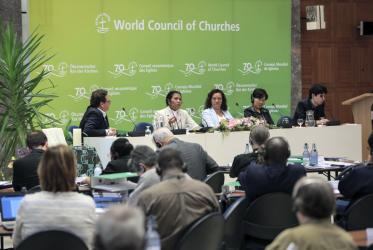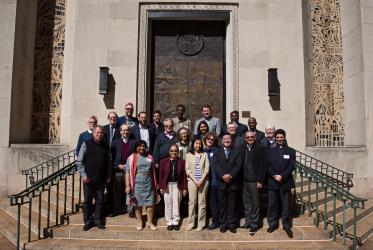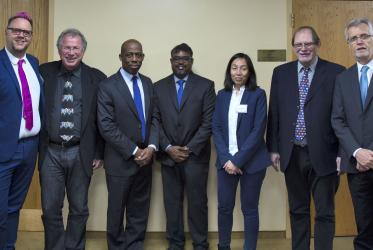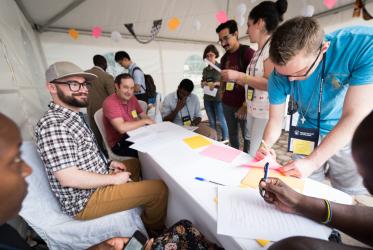Displaying 301 - 320 of 532
Diakonia: “a tool to reach abundance of life”
24 July 2018
WCC promotes Global Day of Prayer to End Famine
06 June 2018
WCC advocates for economic justice at UN conference
01 June 2018
WCC calls for Global Day of Prayer to End Famine
31 May 2018
Panel addresses economic and climate injustice
24 April 2018
New economic architecture focus of New York meeting
22 April 2018
‘Sokoni’ transforms marketplace into mission
13 March 2018
Voices from Colombia: “What if we have no land to till?”
15 February 2018

